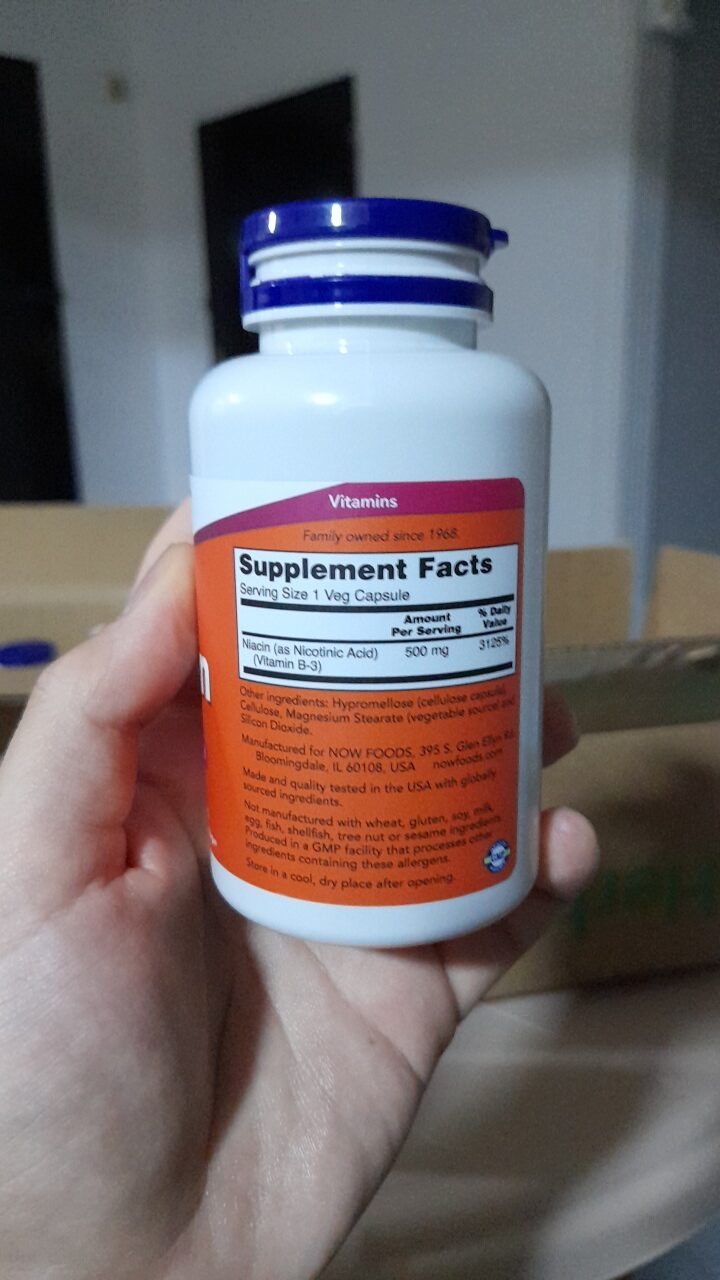
Barcode: 733764444819
Niacin
HALAL
📝 Reason: The product ‘Niacin’ has been analyzed for Halal compliance. Most ingredients are Halal, but magnesium stearate is Doubtful due to potential animal origin without Halal certification. Islamic sources emphasize the importance of consuming Halal and avoiding Doubtful substances (Quran 5:3).
🏷️ Category: Vitamins, Supplements
📄 Certificates: Family Owned Since 1968, Serving Size 1 Veg Capsule, Vegetarisch, Vegan
Ingredients:
Details
Unveiling the Halal Status of Niacin
In today’s health-conscious world, the demand for Halal-certified products is steadily increasing, especially among Muslim consumers. One such product that often raises questions is Niacin, a popular vitamin supplement. This post aims to explore the Halal status of Niacin by examining its ingredients and any potential concerns about compliance.
Understanding Niacin
Niacin, also known as Vitamin B3, is an essential nutrient that plays a crucial role in the body’s metabolic processes. It is typically derived from two compounds: nicotinic acid and nicotinamide. As a vital water-soluble vitamin, Niacin is crucial for maintaining skin health, supporting the digestive system, and enhancing cognitive functions.
Halal Status Overview
The Halal status of any product involves an analysis of its ingredients according to Islamic dietary laws. Niacin is predominantly assessed based on its components, which we will highlight below:
Ingredient Analysis
- Niacin: As a form of Vitamin B3, Niacin is generally considered Halal, as it is not derived from Haram (forbidden) sources. Its origin does not pose concerns regarding Halal compliance. [More Info](https://www.islamicfinder.org/knowledge/islam-and-science/what-is-niacin-and-is-it-halal/)
- Hypromellose: This is a synthetic polymer used as an emulsifier and thickening agent. Hypromellose is deemed Halal since it is not sourced from any Haram substances. [More Info](https://www.halalproducts.org.uk/hypromellose/)
- Cellulose: Derived from plant sources, cellulose is generally recognized as Halal. It serves as a dietary fiber and does not raise any Halal concerns. [More Info](https://www.islamicfinder.org/knowledge/islam-and-science/what-is-cellulose-and-is-it-halal/)
- Magnesium Stearate: This ingredient presents a unique situation. While magnesium stearate can originate from either plant or animal sources, it remains uncertain without Halal certification. Thus, its status is considered Doubtful. Consumers are advised to seek products that explicitly state the source of magnesium stearate. [More Info](https://www.halalproducts.org.uk/magnesium-stearate/)
- Silicon Dioxide: Often derived from sand, silicon dioxide is analyzed as Halal. It is a mineral and does not originate from any forbidden sources. [More Info](https://www.islamicfinder.org/knowledge/islam-and-science/what-is-silicon-dioxide-and-is-it-halal/)
Conclusion
In conclusion, the product Niacin appears to have a Halal status overall. Most ingredients used in this supplement are compliant with Halal dietary laws, ensuring that they do not pose any concerns for Muslim consumers. However, attention should be given to magnesium stearate, which remains a doubtful ingredient due to its ambiguous origin.
Ultimately, as the awareness of Halal compliance continues to grow, it is essential for consumers to research and inquire about the certification of their dietary supplements, ensuring that they adhere to their dietary requirements. Niacin serves as an excellent vitamin that can be safely consumed, provided an understanding of its ingredients’ sources is maintained.
If you are keen to integrate Halal certified vitamins into your regimen, always ensure to look for reliable brands that transparently share their ingredient origins and Halal certifications.
